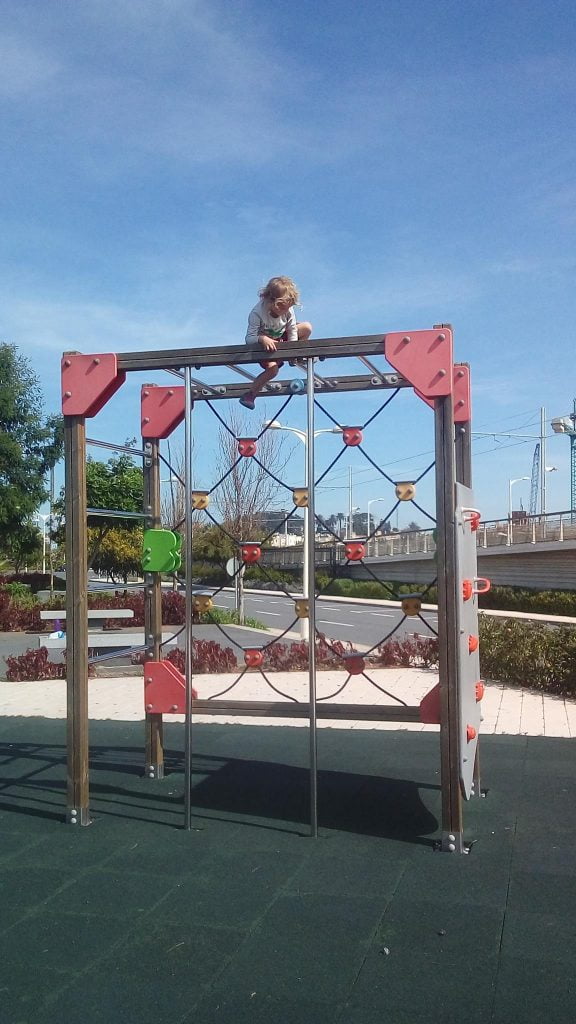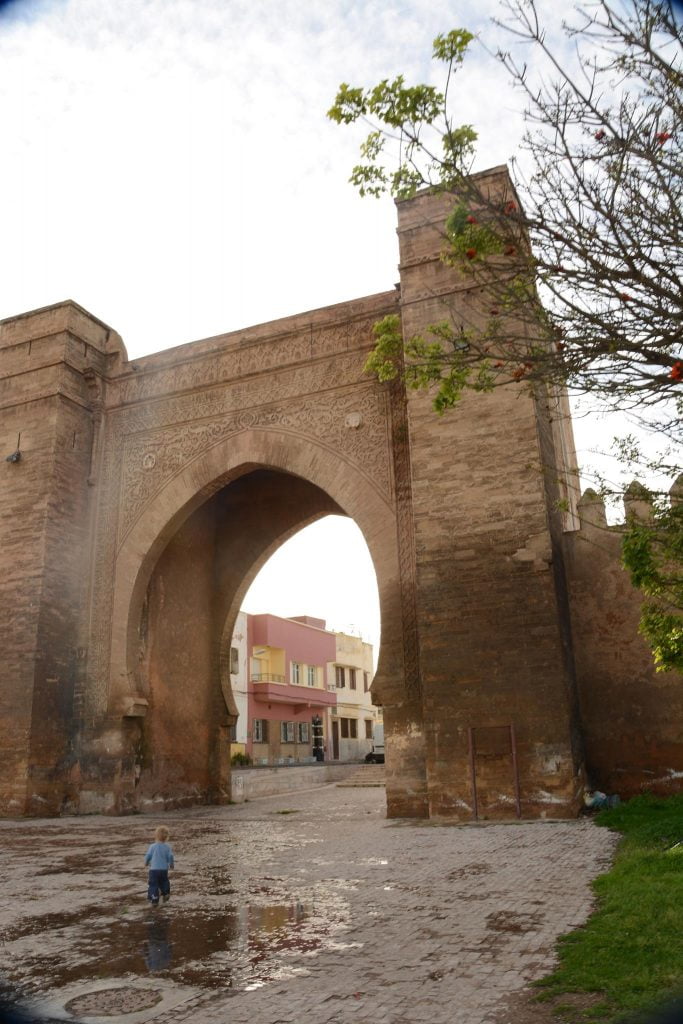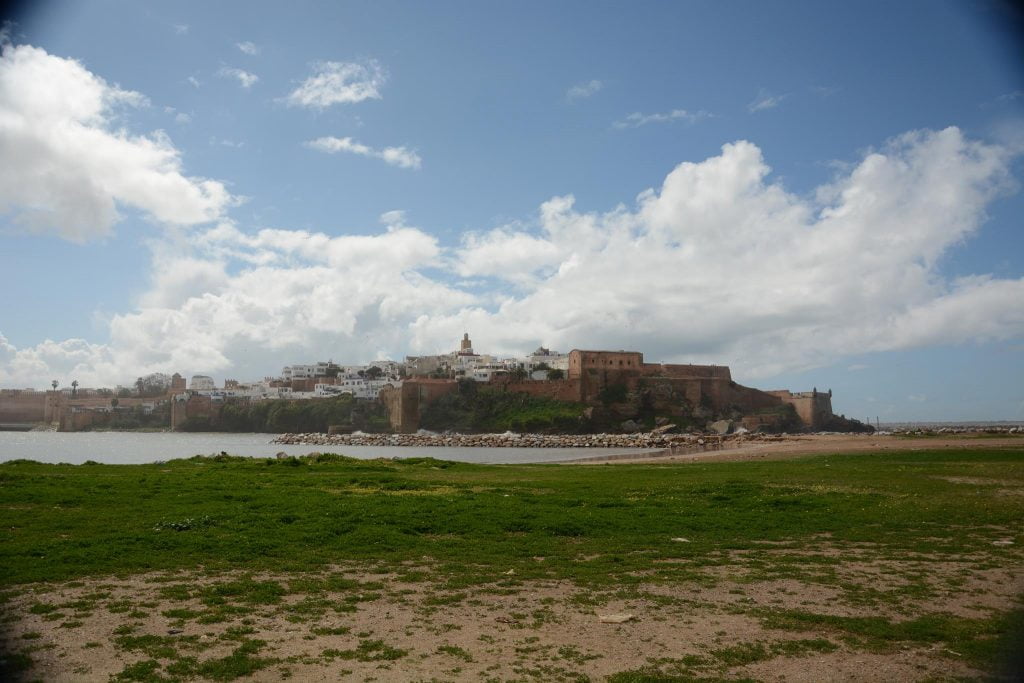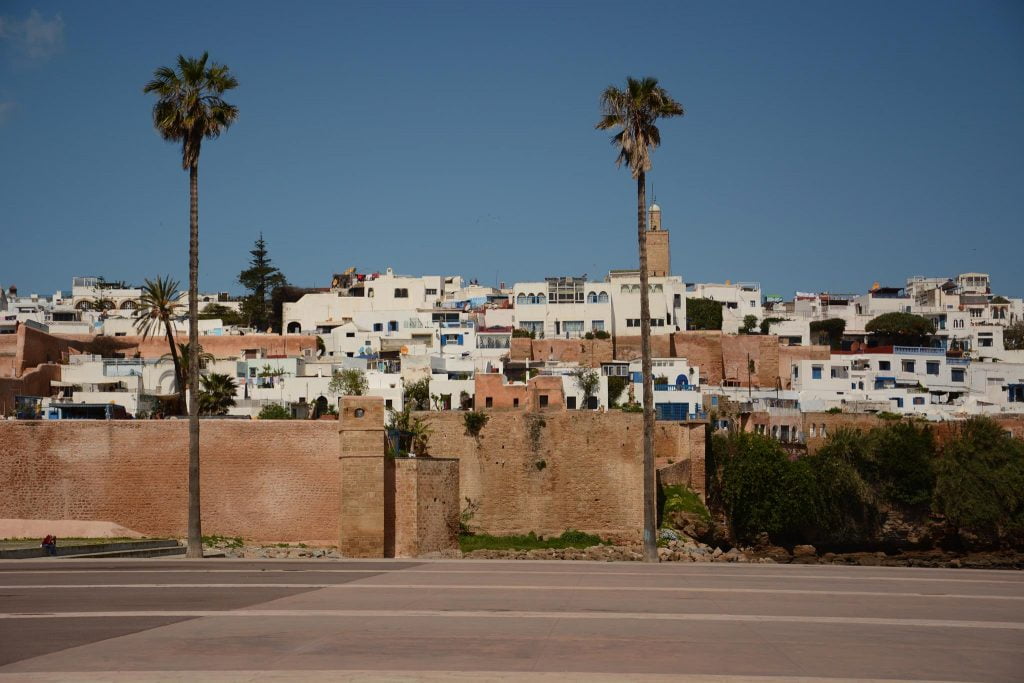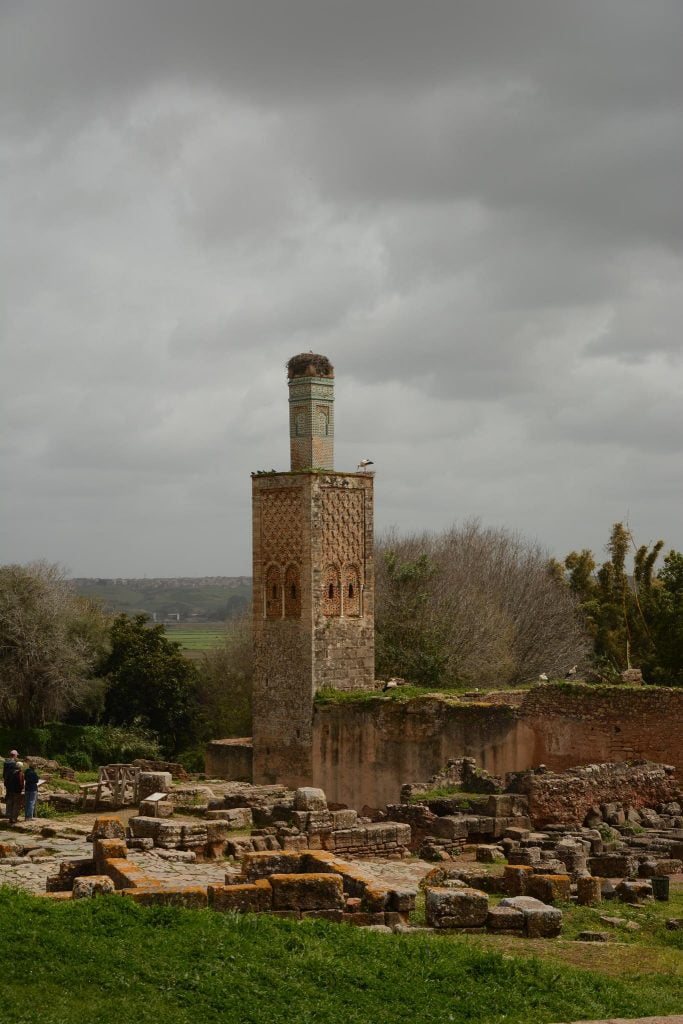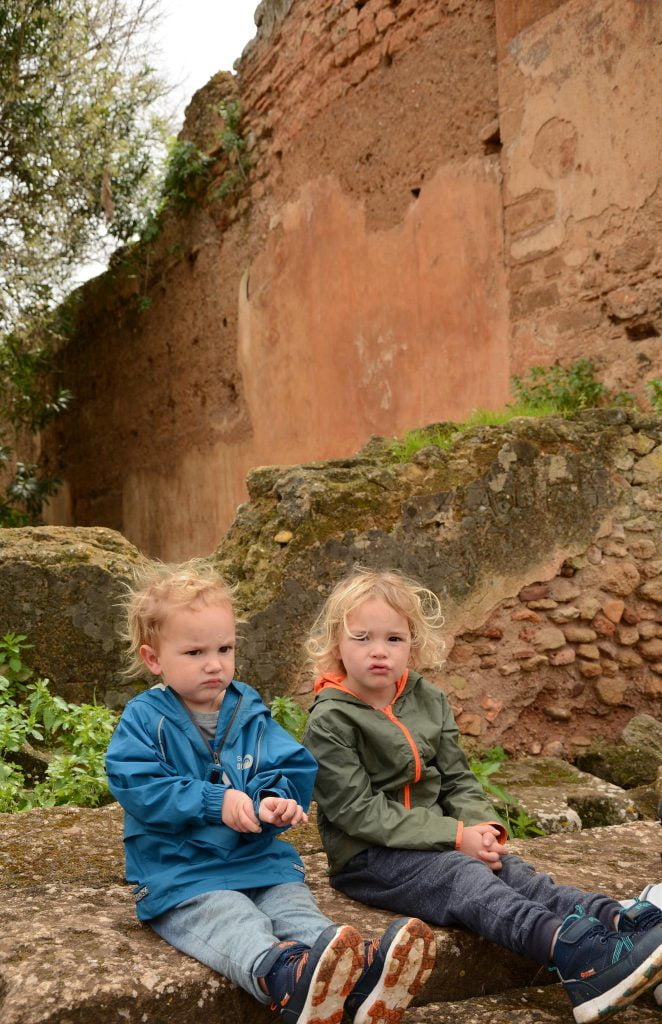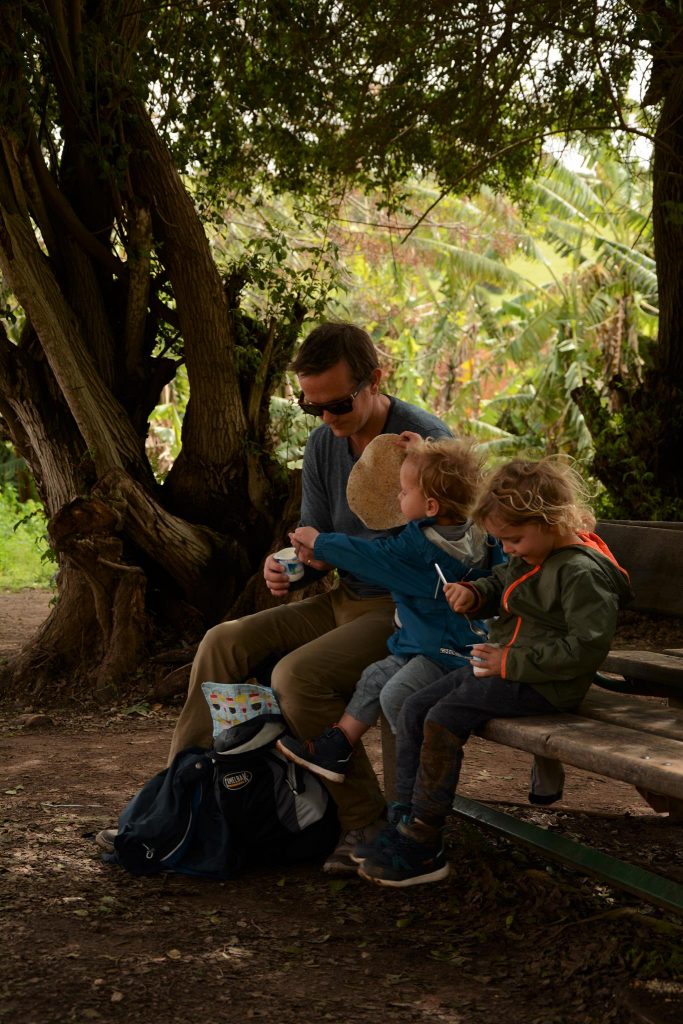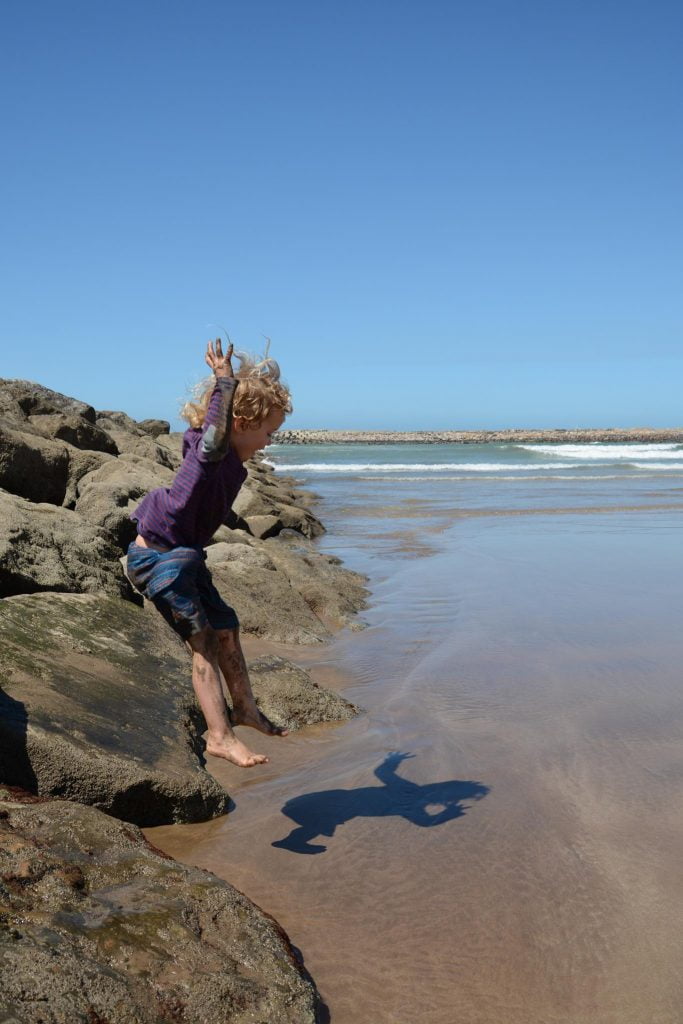14th March to 15th April 2018
Two top tips for boats on arrival: do check the swell forecast before you plan to arrive, and clean your tables before tying up on the waiting pontoon.
After entering on a calm day, we were not sure what the problem with the approach is (and nor were a couple of local fishermen we spoke to while waiting), but the marina was insistent that we wait for their rib to guide us in. So we did. After visiting the beach that overlooks the entrance from the sea on a day with c. 3m swells, I see why the rib guides people in, and the port closes regularly due to weather – SCARY. There are a couple of pics below showing waves breaking across the width of the entrance.
Anyway, on the calm day we entered we were guided down the river by a very snazzy rib (borrowed, as the marina’s was broken), and tied up to the waiting pontoon to await officialdom. They arrived remarkably quickly, and we were only part way through tidying up. Those of you who know our kids and parenting can imagine what the boat looked like after 24 hours on passage. Tidy, it was not. We had got the worst of the clutter away – the rice was not on the floor, the duplo was contained, books were in places books might live. But clothes still littered the sofas and the saloon table wasn’t exactly spotless (the kids prefer to nibble snacks on passage and their recent leftovers were in evidence). The customs/immigration/police trifecta of officials didn’t quite turn their noses up in disgust, but the woman from immigration did suggest we clean the table before getting the forms out.
Morocco loves paperwork, apparently – a form for each branch, all with the same information, and copies of the ships papers (including engine receipts as the serial number of the engine wasn’t mentioned on the sale documents). Anyway, all very quick and easy with more smiles than frowns – helped by the policeman’s perfect English and the fact I tried to understand the French forms, before checking I was writing the correct things!
We then moved onto our berth, and got around to looking at the price list. For a month, for our 12m catamaran, it worked out at less than £10 per night. Including water/electric/bad-wifi. The area is extensively patrolled by security people, as you might expect given that we are next to the King’s pontoon, but I still love the fact that there’s a rope-you-unclip-yourself as the only division between the pontoons and the public space. It felt perfectly safe, nevertheless, and we wouldn’t have worried if we decide to leave the boat here for a few days to head inland and explore the country a little.
In the end a combination of badly-timed illnesses, waiting for parcels (including a new chart chip for the Canary Islands and beyond) Charlotte’s increasing size, and inertia meant we stayed in the local area. There was plenty to do and we felt considerably less city-bound than in previous longer stays in marinas. The marina itself is well situated, by a walk of restaurants and a shortish walk through a pedestrianised area from the beach which was nice, large, well-used on Sundays but otherwise relatively quiet. It feels a lot like Cardiff Bay, where we kept our old Westerly Centaur, actually – the restaurants are conspicuously international, shopping is high-end, and public space is immaculately clean. It’s nice enough, but a little sterile. The saltmarsh and view over to the Kasbah is simply beautiful, though, and once you walk a little further down to the beach (past the place where the rowing-ferries leave) local life begins to seep in again.
The Medinas in Rabat and Salé were wonderful places to explore, and very different in the bits we touched upon. While Rabat was full of the type of shopping you might expect from a medina, Salé felt like a town in which people lived as well as worked, with kids playing in the streets, artisans in their workshops, and smaller shops obviously geared to locals as well as visitors. Like all big cities I am sure there is a problem with crime in some areas – we were careful with bags etc. especially in the more tourist-filled zones, as we would be in any city. But unlike many places with such a clear disparity of wealth, it felt safe everywhere we walked (and we walked a lot).
It took us three weeks to get to know the local shops in Salé – we started at a fruit and veg stall just inside the walls, as well as the bakery. Then found the “main market”, where fruit and veg was always 80 dirhams, no matter how much we bought… or at least negotiations started at 80 each time. After Charlotte and Theo spent an evening at a local woman’s house (we had met her while wandering around the medina) they were taken for a guided tour of the town on the way back to the boat, and introduced to all of the stallholders in the old town. That’s where we shopped for the rest of our time in the marina. The variety of food on offer was better, as were the prices – plenty of the stallholders only spoke Arabic but there was normally a young’un on hand who could translate in/out of French and if not, hand gestures and smiles sufficed. For anyone stopping here, please don’t bother with the supermarkets in Rabat until you have explored this area.
Rabat/Sale was the most welcoming place we have visited so far, which goes double for the kids. A typical example is walking into a restaurant with Arthur in my arms – after saying hello, the waiter took Arthur from me and carried him to the table, seating Arthur while ignoring the rest of us. Picking kids up and otherwise fussing over them is simply normal in Morocco: and because it is so natural for the locals even our kids, who are not shy about rejecting unwanted contact, were perfectly happy with that. One security guard spent a while hunting for snails with the kids, another was cheering and clapping when Arthur rode past on his pedal bike, and Theo on his balance bike, competently. Stallholders would give them samples of spices and smile while Arthur spent AGES smelling each and every one. Just so, so friendly.
Another noteworthy cultural trait is that those unfortunate enough to be on the streets were clearly part of their local community – beggars were met with a much more generous response (even from uniformed policeman) than is the case in Birmingham or London, both in terms of gifting a few dirhams and, especially, time for a conversation. Which given how much poorer, economically, the local area was compared to back home is something to think about. As is the fact a retired teacher, not at all wealthy, took Charlotte and Theo into her home and cooked a feast of local dishes (with excess bagged for Dave and Arthur), gifted Charlotte an Abaya and pair of shoes, before guiding them around her locale on their way back to the boat. And several other instances. We are a little smitten with Moroccan hospitality, which stands in stark contrast to life in the UK and some other places we have visited.
If anything the atmosphere was even better at night. Rabat medina in particular comes alive of an evening with families and people shopping/chatting/living. Sale is a little more traditional and when it gets dark that shows – it is mostly the men who are out, except in the shopping areas – but was still lovely to wander through of an evening.
The kids learnt to cycle! Mostly on the large car park on the far side of the marina (near the playground) which was relatively deserted. After a less-than-enthusiastic series of cycles in Lisbon, it was good to get them going properly here, and because we were biking “to the playground” they were keener. So, Arthur is now racing along on a peddle bike; Theo on his balance bike. Both are speedy and fearless, as might be expected.
There are plenty of other things we could write about, but I want to get this online, so just two brief things. The Roman/Phonecian/Muslim ruins at Chellah were simply stunning (I grew up in Chester which is feted, for much less). And the art gallery underneath Bab Rouah, which we nearly walked past before the attendant beckoned the kids inside, was wonderful too. Arthur left with a guide to the exhibition, a new love of art galleries and a developing sense of his own preferred styles – so much so that we visited another gallery later during our visit.









